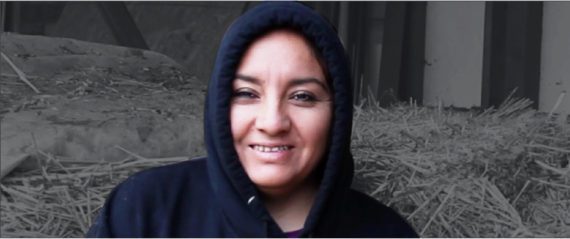By Marco A. Grimaldo
Eighty-nine years ago today, Cesar Estrada Chavez, the great civil rights champion and labor movement activist, was born.
Chavez is best known for cofounding the United Farm Workers union with Dolores Huerta. His organizing efforts began in the farming communities of California, and his success in building a union and speaking out against unfair labor practices has inspired Latinos throughout the United States to strive for change in their own communities.
While his birthday is not a federal holiday, President Obama did proclaim March 31 Cesar Chavez Day and urged Americans to “observe this day with appropriate service, community, and educational programs to honor Cesar Chavez’s enduring legacy.”
I first met Chavez in the summer of 1977. I was 14 years old, and our parents had taken my sister and me to the farmworker convention in south Texas to hear him speak. I remember that as we arrived at the building where the convention was already assembled, Chavez was coming to the microphone. He talked about things that mattered to farmworkers and their families and inspired them to organize and speak up.
I got to know Chavez better in later years, but I remain most inspired by the memory of him coming to that podium in San Juan, Tex., to talk about jobs that pay well, offer safe conditions, and help support a family. He asked the crowd, “Is that too much to ask?”
Chavez saw the challenge of hunger and poverty as a problem of power and politics. Bread for the World has often said that we can end hunger and only lack the political will to do so. Chavez rightly pointed out the irony of farmworkers having no money or food left for themselves, even though they are responsible for the planting, cultivation, and harvesting of great amounts of food that many enjoy in the United States.
Bread for the World Institute’s 2014 Hunger Report found that the poverty rate for farmworker families was more than twice that of all wage and salary employees combined, and it is higher than that of any other general occupation.
To highlight the poor wages and working conditions of farmworkers, Chavez in 1968 went on the first of numerous fasts. For 25 days, he went without food and later wrote, “the fast is also a heartfelt prayer for purification and strengthening for all those who work beside me in the farmworker movement. The fast is also an act of penance for those in positions of moral authority and for all men and women activists who know what is right and just, who know that they could and should do more.”
Chavez broke the fast by taking communion at a mass attended by thousands, including the late Sen. Robert F. Kennedy.
Seeing Chavez and Kennedy together makes me think that those of us who today enjoy a greater voice in American society, especially those who grew up in less advantaged communities and owe a debt to people like Chavez. What sacrifices are we willing to make in our own lives to pave the way for the millions coming behind us whose voices already cry out to be heard?
The cheer of the farmworker is “¡Si se puede!” or “Yes we can.” Chavez taught us that, and on Cesar Chavez Day I invite you to say what you will do to help end hunger and poverty in the U.S. and around the world.
Marco A. Grimaldo is senior national associate for Latino engagement at Bread for the World.
Cesar Chavez and the late Sen. Robert F. Kennedy. Photo courtesy of the U.S. Environmental Protection Agency.



